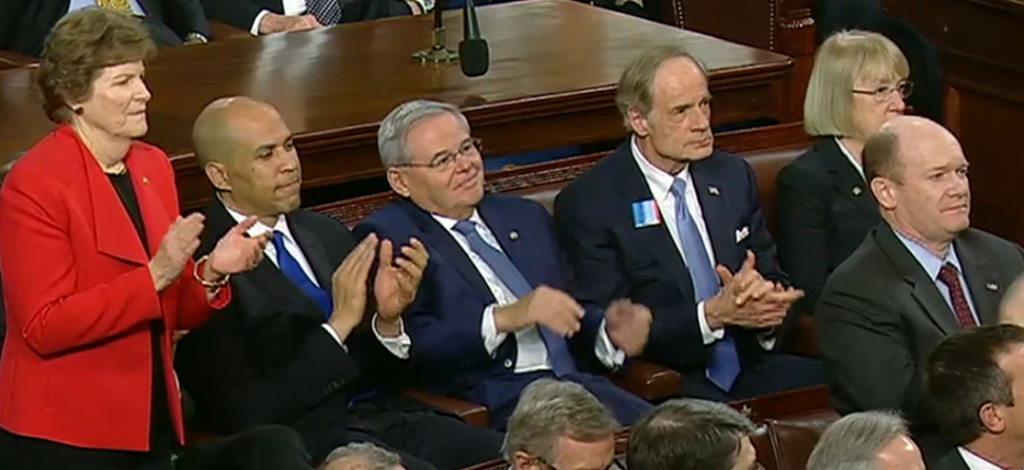Dem Leadership Short-Circuits a Serious Miscalculation

It took a few days, but cooler and infinitely wiser heads among Democratic Party leaders --- including presidential candidate Joe Biden --- prevailed and distanced themselves from demands from its vocal in house leftists that should the Senate confirm a Supreme Court justice nominee, the court should be expanded and packed with jurists who will swear to uphold the party’s legislative agenda.
As upset as they are over President Trump’s decision to fill the seat of the late Justice Ruth Bader Ginsberg no matter the outcome of the Nov. 3 election, party leaders quickly grasped the court packing demands as an ill-conceived and naked political attempt to impose an ideological litmus test on future nominees, requiring them to commit publicly to place partisan considerations ahead of legal precedent or constitutional strictures.
The scheme would reduce the constitution to nothing more powerful or binding than a series of suggestions, rather than as the document which provides the bedrock basis for a system of democracy.
Moreover, it exposes the party as a band of quarrelsome individuals angry over failing to get their own way and willing to change the rules to do so, no matter the damage it inflicts on judicial independence and integrity.
Lost in the clamor is the notion that the court was not created to reflect the prevailing political and partisan winds sweeping through Congress, but to rise above them, rule on the merits of cases before it and interpret the constitution in a manner consistent with the intention of the founders.
Indeed, the lifetime appointments to the court is an acknowledgement that justices should be insulated from political retribution and deserve protection from the partisan passions which so often drive legislative actions.
Democratic leaders were privately aghast at the court packing scheme, understanding that it played directly into Trump’s hands by shifting the debate away from whether a nomination should be submitted some six weeks before the election and framed it as the kind of political combat so relished by the president.
Biden refused to be dragged into the controversy, potentially risking the wrath of the party’s far left but recognizing that putting distance between them was less damaging than appearing to be captured by them.
The Trump campaign has relentlessly pounded the theme that Biden represents an out of the mainstream school of thought, a tilt toward establishing a socialist, spendthrift, soft on crime national administration.
Aligning himself with a plan to remake the Supreme Court into an arm of the Democratic Party would offer Trump another and more compelling line of attack.
A slight majority of the country favors delaying a nomination until after the election on the theory that, if Trump wins a second term and the Senate remains in Republican hands, the issue is resolved on its own.
If Biden wins, the theory goes, he should be given the opportunity to fill the vacancy as a matter of fundamental fairness to the expressed will of a majority of the voters.
Senate Majority Leader Mitch McConnell has brushed aside accusations of hypocrisy arising from his refusal to schedule action on a nominee to the court seven months prior to the 2016 election and, at this point, has secured the backing of his membership to move ahead with hearings and a confirmation vote.
It appears, moreover, that there are 51 or 52 votes committed to confirmation, provided the nominee displays the qualifications, intellect and temperament to serve.
Democrats are frustrated and upset, but they have no leverage. They cannot block the nomination nor, it seems, defeat it on the Senate floor.
Falling victim to a scheme as radical as court packing to reflect their frustrations, however, is a serious miscalculation and the leadership has recognized it as such.
The vocal left will likely continue to ratchet up the rhetoric, arguing as loudly as it can that a potential 6-3 right of center balance on the court endangers much of the progress of recent years on social issues in particular.
Demanding a reconfiguration of the court to meet their demands, however, only serves to undermine public confidence in the judicial process and promotes a belief that a fair and unbiased application of the law and the constitution has taken a back seat to an obsession with political victories.
The ballot box remains the most effective and constructive way to address and resolve the issues facing the country. It may strike some as unfair on occasion, but democracy is not unfailingly fair in every circumstance.
In fact, that’s why we have, enjoy and must preserve independent courts.
Carl Golden is a senior contributing analyst with the William J. Hughes Center for Public Policy at Stockton University.





